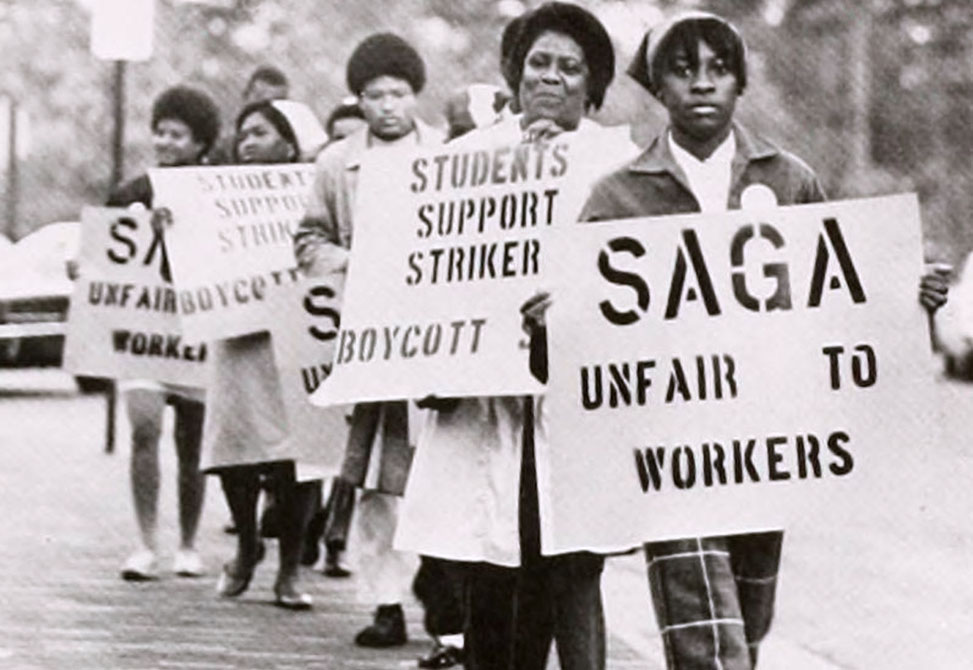Cafeteria workers' strikes
In the fall of 1968, dining hall workers at UNC—Chapel Hill presented Chancellor J. Carlyle Sitterson with a list of suggestions for improved working conditions. They lobbied for pay raises, shorter workdays, and better treatment from supervisors. Their cause was soon joined by members of the Black Student Movement, who listed improved treatment for African American staff at the university in their list of twenty-three demands to the chancellor in December 1968. In February 1969, still waiting for a response from campus administration, the cafeteria workers went on strike. They were supported by some students and faculty who joined the picket lines and helped set up an alternative food stand in Manning Hall. Black Student Movement members helped emphasize the demands of the workers by slowing down dining hall service and overturning tables in Lenoir Hall, actions that drew the attention of Governor Robert Scott. The governor first ordered students to be arrested if they disrupted campus services or facilities and then sent North Carolina Highway Patrol officers to campus to ensure that the dining hall could open and operate without incident. In March 1969 the campus administration agreed to meet several of the workers' demands, including a small raise, extra pay for overtime work, and back pay. However, a few months later the university outsourced its dining services to Saga Corporation, a private food service company. The cafeteria workers, now unionized, continued to complain of poor treatment and pay and went on another strike in late 1969, but campus administrators argued that their issues were now with Saga, not the university.
More information about Cafeteria workers' strikes
Date Established: 1969
Date Range: 1969 – 1969

Cafeteria workers on the picket line during the second cafeteria workers strike in late 1969. Yackety Yack, 1970, North Carolina Collection, Wilson Library.

